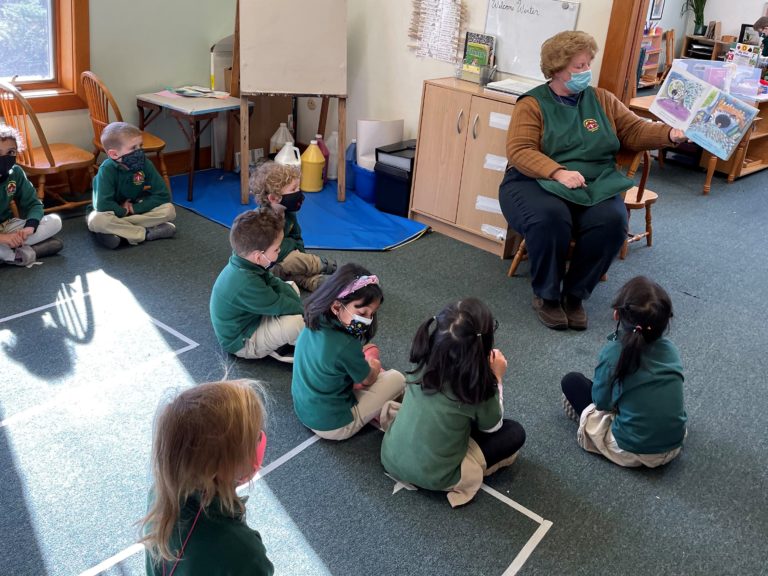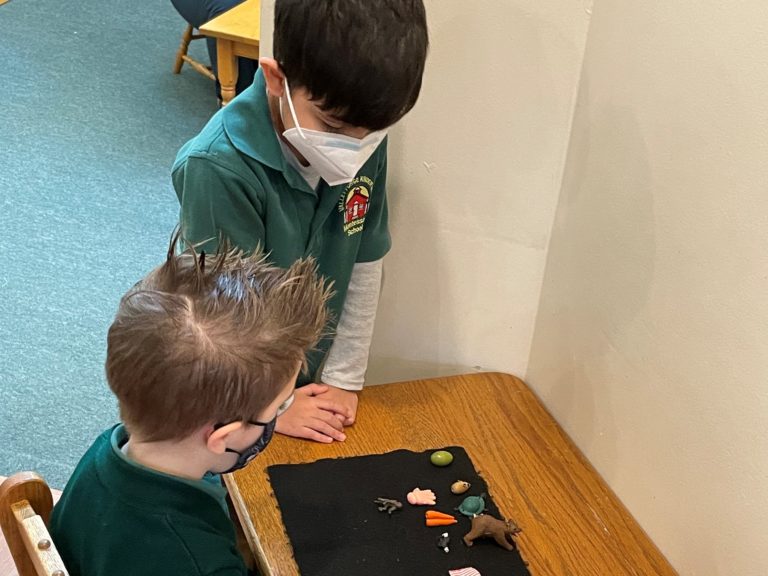Once a child learns the majority of their letter sounds by decoding they also need to learn Language Comprehension, which is the ability to derive meaning from spoken words. It has nothing to do with the actual written letters on a page, but how a child’s oral language develops.
There are five different components that involve oral language.
- Phonology: the organization of sounds within a language.
- Vocabulary: the understanding of meanings of words and phrases (receptive vocabulary) and being able to use those words and phrases to communicate (expressive vocabulary).
- Grammar: the set of structural rules of sentences.
- Morphology: the smallest meaningful parts from which words are created (roots, suffixes, prefixes).
- Pragmatics: the understanding and use of social language.
A child starts developing these skills right from the very start of life and the first five years are crucial for language development. If a child can sound out words, but doesn’t know what the words mean, the child will not comprehend the written form. Even if our young students don’t know how to decode or aren’t interested in learning letters just yet, you can still help them become strong readers by working on strengthening their oral language skills right now.
The best part of developing oral language is that it’s something we can do every single day!
Help Your Child Develop Their Oral Language Skills
Guiding a child to decode written language is complex and involves a lot of steps. But, helping a child develop their oral language skills is something we can all do so much more easily and we don’t need an advanced degree to achieve this. Here are five ways to help your child develop their oral language skills.
Talk to Your Child All Day Long
Narrate your day, point things out, and use high-level vocabulary and grammar. Don’t simplify your language because young children can understand complex vocabulary words if you explain the meanings or use examples to describe the words.
Give Your Child as Many Hands-on Experiences as Possible
The more real-world experiences your child has (like visiting a farm or a fire station), the more their oral language will bloom. This also includes sensory experiences like sensory play, messy play, and play dough. Just showing your child how to do daily life activities, such as cooking or fixing items in the house, can help with this process.
Sing Nursery Rhymes and Other Rhyming Songs Over and Over
Research has shown a positive correlation between nursery rhymes knowledge and early phonological and print-related skills not to mention rhyme awareness is a significant predictor of reading and spelling success for a child.
Read Lots of Books
The great part about books is they usually contain more advanced vocabulary words than what we use in our spoken language. One study suggested books are two to three times as likely to contain a word that isn’t in the 5,000 most common English words. That study also showed that picture books include more uncommon words than even conversations among adults!
Read Every Day
If you read to your child for one minute a day, they will hear 8,000 words in a year. If you read to them for five minutes a day, they will hear 282,000 words in a year. And if you read to them for 20 minutes a day, they will hear 1.8 million words in a year! The difference is very clear so try to aim for 20 or more minutes, which can be broken into short moments throughout the day to help your child develop their oral language skills.
I will continue this discussion next time by combining both the knowledge of decoding sounds and the development of language comprehension, so that the ultimate goal is to help a child become a better reader so that they can develop their ability for reading comprehension.

